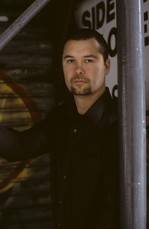He then saw his subject enter the room, a middle-aged man with red hair wearing a light smoker’s jacket and a wet hat, for it was raining outside. The man took a seat, and the experiment began.
“I’d like to explain to both of you now about our Memory Project,” the gray-coated experimenter said to the man and also to McDonough, who was already in his act, nervously twitching in the chair next to the subject. The plan was to place McDonough in a separate room and have the subject shock him. There wouldn’t really be shocks, of course. No electricity, either. The box was a grand hoax. The point was that the subject should be obedient to the experimenter. The subject should respect the experimenter’s authority, only because the experimenter wore a coat and spoke with a deep voice and held a clipboard.
“Psychologists,” the gray-coated man went on, “have developed several theories to explain how people learn various types of material.”
Milgram stopped listening. He had fallen away somewhere, to that other plane.
“Okay, now we are going to set the learner up so he can get some punishment,” the experimenter said. “Learner, let me explain what’s going to happen, what you’re supposed to do. The teacher will read a list of word pairs to you.”
Milgram shut his eyes.
“So he later reads to you,” the experimenter was saying, “‘strong: back, arm, branch, push.’ You would press this one-”
McDonough hesitated. “Well,” he said, as he had been instructed, “I think I should say this. When I was in West Haven VA Hospital a few years ago, they detected a slight heart condition. Nothing serious. But as long as I’m getting these shocks-how strong are they? How dangerous are they?”
The experimenter ignored McDonough’s question. He went to the subject. “All right,” he said. “Now listen carefully to the instructions. First of all, this machine generates electric shocks.” He slid his hand over the box, his palm making a hiss as it moved across the black surface.
Milgram thought of Eichmann. He thought of Mengele’s pressure chambers. He had heard from his father that Mengele had frozen Jews alive until their bodies could be cracked apart limb by limb. One Jew, his father said, was pointing. Perpetually pointing, a statue on the frozen ground at Auschwitz. They called him zarah: the compass.
“Before we begin,” the experimenter said, “I’d like to ask you, the subject, your name.”
The subject’s voice came through the static and into Milgram’s tiny room. “Orman,” the man said. “Edward Conrad Orman.”
Acknowledgments
Writing a book is hardly a solitary effort, and I am fortunate to have worked with some gracious, fiercely intelligent folks during this process. Thanks are in order to my wonderful agent, Laney Katz Becker. Laney’s guidance and support-and her novelist’s eye-made this book so much better than it was when it first showed up, bloated and misshapen, on her desk. To Anna Stein, whose tenacity pleased and scared me at the same time. To my editor, Sally Kim, who was so kind and attentive and who really made the editing process a sort of perverse delight. To Dr. Thomas Blass, whose book The Man Who Shocked the World: The Life and Legacy of Stanley Milgram was an invaluable resource. To James Leary, who helped me kick this book’s butt when it needed kickin’. To my family in Whitley City, of course. And finally to my lovely wife, who is just days away from giving birth to Jenna Marie at the time of this writing. My passion burns for you…
About the Author

Will Lavender is a professor of writing and literature. He holds an MFA in creative writing from Bard College in Annandale-on-Hudson, New York. He lives in Louisville, Kentucky, with his wife and children. He is currently working on a second novel.
